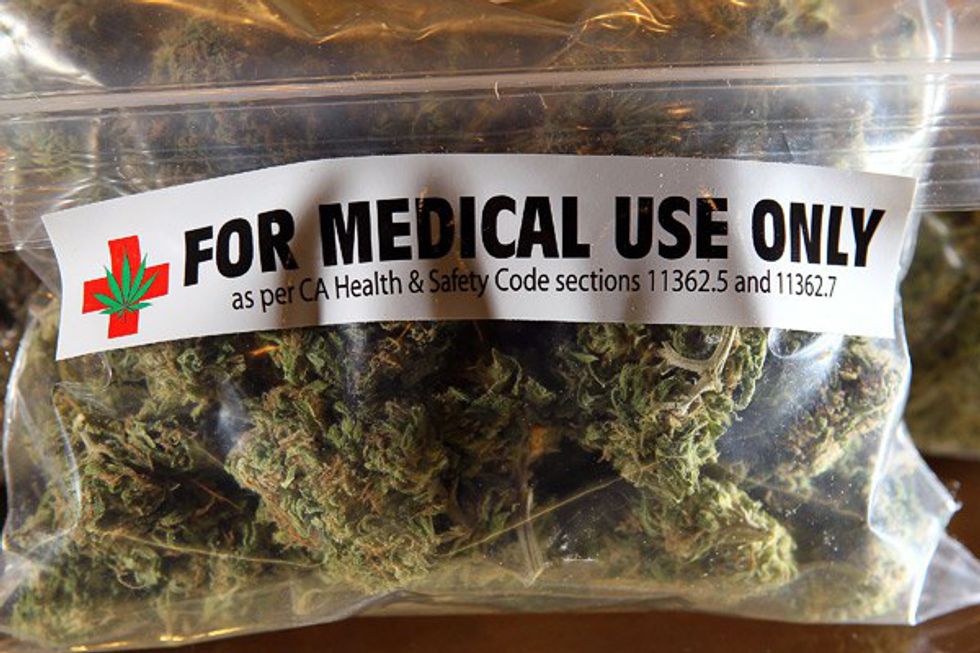The issue of legalizing medical marijuana has been an ongoing conversation that has and will be continued to be discussed and evaluated in the council chambers amongst the council members of countless cities. Recently, Los Angeles has proposed competing medical marijuana ballot initiatives; the city of Los Angeles will serve as a model for other cities who are working to eliminate the opening of any more dispensaries. The generalized concern leading up to the ballot initiatives focuses on the harm of marijuana to the city. While many believe that the use of marijuana is harmless, and in fact a “medical” treatment, this is not entirely true. The use of marijuana is not only harmful to a pot smoker himself but also harmful to the rest of society. Research and studies prove that Marijuana can harm a person’s memory—and this impact can last for days or weeks after the immediate effects of the drug wear off. The growing consequences of society’s addiction to marijuana has been seen in Los Angeles, and now in Long Beach. Medical marijuana establishments are increasing and it is the city’s duty to regulate and control these establishments in order to best protect its citizens. In LA are the following measures E,D,F:
Ordinance E: The official proponents of Initiative Ordinance E have concluded that the Los Angeles City Council-backed Proposition D supports the principles set forth in our Initiative, and there is no longer a need for the voters to support Initiative Ordinance E.
Measure D/“Medical Marijuana Collectives Initiative Ordinance”: This ordinance would limit the number of dispensaries. For the existing dispensaries: taxes of $60 per $1,000 of sales, close at 8 p.m., required background checks for their dispensary managers and employees, restrictions from opening within certain distances from schools, parks, libraries, and other dispensaries.
Measure F/“Regulation of Medical Marijuana for Safe Neighborhoods and Safe Access”: Measure D and F are in many ways similar: both raise the taxes from $50 to $60 per $1,000 in sales, both impose zoning restrictions to keep dispensaries away from schools and other certain locations.
Major difference between D and F: Measure F will allow an unlimited amount of dispensariesand also requires dispensaries to have their medicine tested for harmful pesticides and toxins.
Regulations in Measure F: require a 10 p.m. closure, background checks of all managers, employees and volunteers, and each dispensary would be required to file with the City Controller an audit of its operations to guarantee compliance with the law.
Essentially,Proposition D would reduce the nuisance that has helped prompt federal action in Los Angeles. David Welch, an opponent of Measure E and D, proposes that Proposition D is only going to lead to an eventual ban on all dispensaries by allowing federal raids on the dispensaries the proposition doesn’t cover. The final result on May 21, 2013 gave measure D a majority of the vote (62.57% yes votes). Since its passing, there has been increased difficulty in regulation. Council members voted to completely ban pot shops last summer, but the new ordinance never went into effect. Los Angeles City Attorney Mike Feuer has been working to shut down unlawful dispensaries and has turned his attention to focusing on real estate professionals and landlords renting space to marijuana dispensaries.
Many cities, including yours, are beginning to jump on the legalization of medical marijuana bandwagon. If it is of any concern to you, it is essential to stay updated with the stances of your council members and voice your opinions and concerns to your leading figures. While it is impossible to say what the ballot measures of your city will include, it is safe to assume the competing ballot measures will be similar to the ones of Los Angeles.







 Energetic dance performance under the spotlight.
Energetic dance performance under the spotlight. Taylor Swift in a purple coat, captivating the crowd on stage.
Taylor Swift in a purple coat, captivating the crowd on stage. Taylor Swift shines on stage in a sparkling outfit and boots.
Taylor Swift shines on stage in a sparkling outfit and boots. Taylor Swift and Phoebe Bridgers sharing a joyful duet on stage.
Taylor Swift and Phoebe Bridgers sharing a joyful duet on stage.













